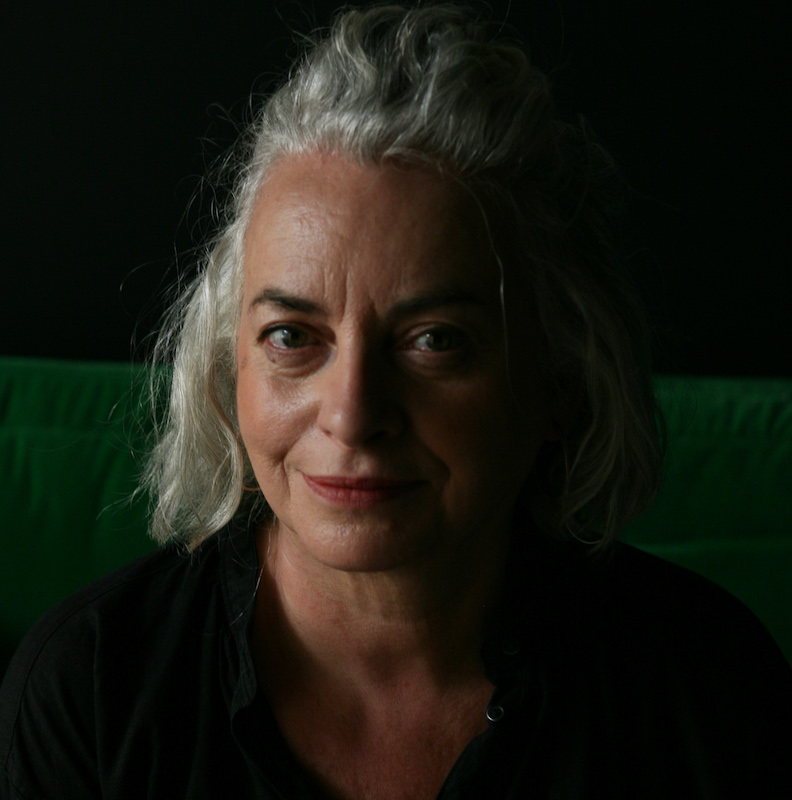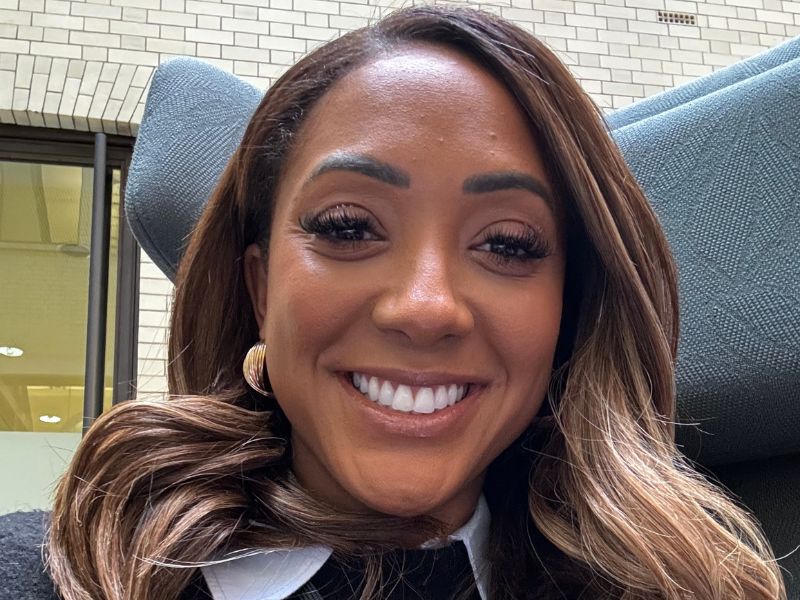 Sally Anne Gross has been working in the music industry for nearly three decades as an artist manager, record label director and international business affairs consultant.
Sally Anne Gross has been working in the music industry for nearly three decades as an artist manager, record label director and international business affairs consultant.
In 1993 she was the first woman to be A&R Manager at Mercury Records UK. In her current role at the University of Westminster, she is the program director of the MA Music Business Management.
Tell us a bit about yourself, background and your current role
I was born in Hackney, east London but my parents moved to Muswell Hill when I was 2, so I always say I am a north Londoner. My father was a holocaust survivor and my grandmother Sarah was liberated from Auschwitz-Birkenau. So my family history has had a huge impact on shaping my life. Being involved in social justice issues is part of the fabric of my character and fighting racism is a lifelong commitment. I lived most of my adult life in Wood Green, London and moved to north Hertfordshire eight years ago- to get away from the sound of the police helicopter and the noise of the traffic. Although I naively had no idea how loud the birds can be or how nuts my dogs would be when a squirrel turns up in the garden. The majority of my career in music has been as an artist manager but over the last thirty odd years now I think I have done everything from being a roadie, to driving the van to working at a major record label with a company car and an office with a view. I’m now a music consultant, author, academic and artist manager.
How did your career unfold?
Back in the early nineties, I was the first women to work as a senior A & R manager at Mercury Records, which at the time was the biggest record label in the world. Around the same year I also chaired the first ever panel on ‘Women in the Music’ at ‘In The City’ music conference in Manchester. I was also a director of the first LGBTQ record label Out On Vinyl, that was set up in Manchester in 1993.
After getting a law degree at night school in the early 2000s, I moved into entertainment law for a short period but I really did not enjoy the law office environment. I had really loved studying law but working in it was another thing altogether. Then just when I was beginning to think I would need to revise all my plans I got a call from Philippe Cohen Solal, whom I had become friends with when I had been working with William Orbit and who is the owner of ¡Ya Basta! Records in Paris. Philippe wanted to discuss his new band Gotan Project with me and as soon as I heard the album ‘La Revancha del Tango’ – I knew my career as a solicitor was over, I actually faxed my resignation from the Raleigh Hotel on Miami beach!
Then a couple of years later I was approached by the University of Westminster to evaluate their master’s in Music Business Management. This led to me being able to work in Paris and London which was just really brilliant. Within a year, Westminster asked me to apply to become the course director of the MA Music Business and I saw it as a great opportunity to work with the students on shaping the future of music management. For the last five years I have been focusing on researching the working conditions of musicians and music professionals. In 2016 I founded ‘Let’s Change the Record’ a project that focuses on bridging the gender divide in music production. In 2016, Richard Antwi, who was a successful music manager and lawyer passed away suddenly. Richard was not only my friend but also my son Adam’s manager so losing Richard so suddenly really impacted all out lives. It was a very sad time but at the moment Matt Ross, who was another mutual friend approached me about setting up a scholarship to honour Richard’s Legacy, the idea to do something good in Richard’s name was born. That idea grew into the Richard Antwi Scholarship which is a collaboration between the MA Music Business Management/University of Westminster and donors from across the music industries, including all three major labels Sony Music, Warner Brothers and Universal Music. The scholarship is awarded to students from Black and Global Majority backgrounds to study on the MA Music Business Management. The aim of the scholarship is to improve career opportunities for students from those backgrounds across the music and music technology industries. So far we have had 2 scholars and 2 associate scholars and they are all incredible and already making an impact in the world of music.
I have always been really interested in the relationship between culture and psychology and I think it was this interest that took me down a new road and led me to thinking about what was happening to music makers and music producers in the age of digital reproduction. I became very aware that there was so much music being made and simultaneously I seemed to be surrounded by anxious and very stressed out musicians and even music students and that is how my research started, which asked the question Can Music Make You Sick? and examines what it actually feels like to make music and work in the music production at this current juncture.
After four years of research, I am now the co-author of ‘Can Music Make You Sick- Measuring the Price of Musical Ambition’. The book is based on research that I conducted with my research partner Dr George Musgrave that was funded by the charity Help Musicians. It is the largest ever study into mental health in the music industry. I am also on the board of trustees of the Ivors Academy Trust.
Did you ever sit down and plan your career?
NO but you have to remember that I was a teenager in the 1970s and things were very different then. I had my first child when I was 19 in 1978! All my friends were in bands and /or at art school, or working in Camden Market making T shirts. We were very politicised at that time and socially conscious mostly trying to survive by resisting having to get a day job. I wanted to be a photographer, but ended up managing musicians and DJs partly because at first it suited my domestic life – I could work from home and get babysitters when I had to go out at night. My first full-time assistant I poached from the nursery school and we still work together 30 years later, except she became a much more successful manager than me 🙂
Have you faced any challenges along the way?
Mainly child-care, but yes for sure although I do not know that I experienced them as challenges at the time – now I tend to call it everyday sexism, its endless and debilitating but I tend to try and be conscious of my own privilege at all times. I was trained that way! When I was growing up we could never say we were hungry let alone ‘starving’ my parents would just never allow it- we were constantly reminded that we had no idea what it meant to be hungry to this day I have no idea what it means to be hungry – it’s a good lesson and it helps keep things in check.
I worked in a very male–dominated environment and became accustomed to often being the only women at the table – I can say honestly it was much worse in Paris. I think the experience of working in different places allows you to see how entrenched and pervasive racism and sexism are, and also how they get manifested in different ways. The thing that gets me through is remembering that everything changes and that in my lifetime I have experienced so much positive change. Nonetheless, discrimination and inequality takes an enormous toll on people’s health and mental health.
Looking back on my life, sometimes I do wonder how I got through all that, but at the time it all seemed to have been a crazy, intense adventure and it was always about getting stuff done – making lists and getting things done. I am pretty disorganised to be honest but I can create plans, road maps for getting somewhere. I am also dyslexic – so I am always really grateful to the amazing women I have surrounded myself with and some wonderful men too. I have great friends and colleagues and even in the madness and bad times, and there have been a few – we have pulled each other through. I love that cameradrie of working as a team, but I also had incredible support at the start of my career from some of my family, especially the first band I worked for Chapter and The Verse, Colin Thorpe and Aniff Akinola, who both totally believed in me and also Andy Dodd and Elliot Rashman who managed Simply Red. So the city I owe my career to and am very proud of is actually Manchester. Interestingly this year, I have been tracing my mother’s history and found out that her family are from Salford, so it seems my northern roots are deeper than I knew.
What has been your biggest achievement to date?
My four amazing kids who are all now wonderful human beings and I am very proud of them even if they do not ring me enough!
Work wise I am so lucky to have had so many brilliant moments – I am really grateful now to have worked with Philippe Cohen–Solal for the past 20 years. Philippe was the founder of Gotan Project and a personal highlight was Gotan Project’s sold out show at Sydney Opera House which was incredible. I got to bring my Uncle Yoram and my cousins to the show, so it was really a very special family moment too.
I feel my work on mental health, social justice and race and gender equality in music is a duty and it is really important to me and I am committed to continuing the work – because there is a lot to be done!
What one thing do you believe has been a major factor in you achieving success?
Not giving up!
How do you feel about mentoring? Have you mentored anyone or are you someone’s mentee?
I love being a mentor and my list of mentees is endless – as anybody who knows me will tell you – I adopt people all the time, I am a serial adopter and mentoring is big part of me. I have never been a mentee but I am an eternal student – I left school at 15 but have never stopped studying and you can never stop learning. I have had some wonderful teachers all of whom I fall in love with, I even married one!
If you could change one thing to accelerate the pace of change for Gender Parity, what would it be?
Ending the Patriarchy, but if we can’t cancel that immediately, then a very effective solution would be the immediate introduction of a Universal Basic Income, which would alleviate poverty and the stigma and complexity of the benefits system that has a hugely negative impacts on people’s mental health and live chances. So one thing would be Universal Basic Income – because it makes sense for everyone! and of course this would be an incredible way to support all those people that work in music and the creative industries in general. It would be a really useful way to indirectly support our cultural workers in the most equitable way and help alleviate the strains of precarity that our research showed were so damaging to people’s mental health but are also experienced in additionally detrimental ways for women and carers.
If you could give one piece of advice to your younger self what would it be?
Don’t start smoking!
What is your next challenge and what are you hoping to achieve in the future?
Apart from stopping my chickens from escaping! I am also working on another phase of the mental health research with Dr George Musgrave and Professor Catherine Loveday, who is a neuroscientist at the University of Westminster. We are digging deeper into what is actually going on for musicians when they experience stress and anxiety, looking at the impacts on the body as well as the mind.
Everything else is about keeping on keeping on – doing the work that needs to be done – keeping your eyes on the prize -la lotta continua!
‘Can Music Make You Sick? Measuring The Price Off Musical Ambition’ by Sally Anne Gross and George Musgrave is available now, on free ebook and paperback.
For more info on the Richard Antwi Scholarship https://www.westminster.ac.uk/news/applications-open-for-richard-antwi-scholarship-for-music-business-management-course-with
WeAreTheCity has a back catalogue of thousands of Inspirational Woman interviews, including Cherie Blair, Paula Radcliffe MBE, Caprice Bourret, Anna Williamson and many more. You can read about all our amazing women here.








